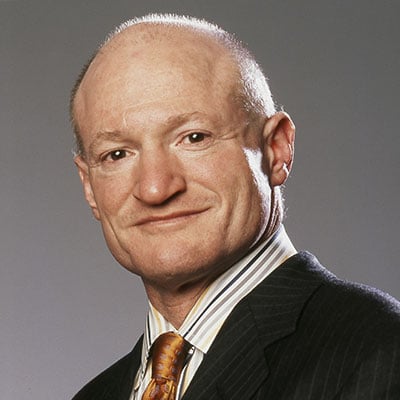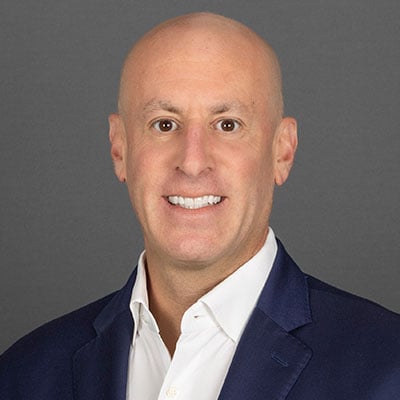LightSquared Brings Objectors on Board with Ch. 11 Plan
Two investment firms have agreed to reverse their votes against LightSquared Inc.’s restructuring strategy in exchange for new preferred equity interests, eliminating much of the wireless venture’s remaining opposition in a trial on its proposed emergence from bankruptcy.
A settlement reached over the weekend has disposed of Chapter 11 plan objections from Centaurus Capital LP and Providence Equity Partners LLC, each of which held preferred stock in LightSquared before the failure of its proposed nationwide wireless network and subsequent bankruptcy.
An attorney for LightSquared’s independent committee, Joshua Sussberg of Kirkland & Ellis LLP, said in Manhattan bankruptcy court on Monday that the debtor would amend its restructuring plan shortly to incorporate the deal and pin down further details.
If approved by U.S. Bankruptcy Judge Shelley C. Chapman, who spent last week hearing witness testimony on LightSquared’s future, the plan would now create a new class of preferred stock in the reorganized entity for Centaurus and Providence to hold. The newly created stock would sit behind an existing preferred class in LightSquared’s postbankruptcy capital structure, Sussberg said.
LightSquared’s plan, which emerged after the failure of seven prior restructuring proposals, would hand a 44 percent equity interest to Harbinger Capital Partners LLC, the venture’s longtime sponsor, with smaller stakes going to Fortress Credit Opportunities Advisors LLC, Centerbridge Partners LP and SIG Holdings Inc., a JPMorgan Chase & Co. affiliate.
Whether the plan treats other investors fairly depends on how much LightSquared’s wireless spectrum assets are worth with its licensing application still sitting unapproved before the Federal Communications Commission. With no way to know how, or when, the FCC will rule, the valuation question has been fraught with conflict.
LightSquared’s valuation has been driving discord since the case began in 2012, turning the bankruptcy into one of the longest and most contentious in recent memory. Early on, it emerged as a struggle between Philip Falcone, the head of Harbinger and LightSquared’s longtime champion, and Charlie Ergen, the outspoken chairman of Dish Network Corp.
Ergen, LightSquared’s largest single creditor, opposes the proposed plan, saying he deserves better terms on a $1.3 billion claim that the debtor wants to pay off with $320 million in cash and the rest in new junior debt.
The trial continued Monday with testimony from Jonathan Orszag, an economic consultant who told Judge Chapman that the proposal treats creditors more fairly than a previous version that called for handing Ergen a controlling 60 percent equity stake.
That aborted plan, Orszag said, failed to offer meaningful recoveries to junior stakeholders and was based on a lowballed estimation of LightSquared's value. A subsequent government auction revealed strong demand for similar spectrum assets, causing several stakeholders to begin angling for ownership positions. LightSquared's valuation speaks directly to stakeholder recoveries, since a stronger entity can handle more debt after leaving bankruptcy.
Judge Chapman has already ruled that Ergen could be partially wiped out due to his stealthy acquisition of LightSquared’s debt, which he accomplished anonymously through his personal SP Special Opportunities LLC investment vehicle. Harbinger had sued SPSO, claiming that Ergen schemed to infiltrate LightSquared’s capital structure to position Dish as a potential buyer for certain spectrum assets.
Should Judge Chapman elect not to confirm the debtor’s plan, Solus Alternative Asset Management LP has proposed an alternative strategy to take a controlling equity stake in exchange for providing $742 million in bankruptcy financing.
Solus, a creditor and preferred stockholder, sweetened its proposal last week with an offer to cash out $500 million in secured debt and inject $89 million in new financing.
Falcone, who resigned from the LightSquared board last year, has long insisted that the company will be worth billions once it wins regulatory approval for its network. The stalled licensing application was a big reason Judge Chapman denied a previous reorganization plan last year. Without certainty from the FCC, she said, the proposed plan to pay back Ergen over five years was unreliable, and in any event it treated him too poorly to pass muster.
LightSquared is represented by Matthew S. Barr, Alan J. Stone, Michael L. Hirschfeld and Andrew M. Leblanc of Milbank Tweed Hadley & McCloy LLP. LightSquared’s special committee is represented by James H.M. Sprayregen, Paul M. Basta and Joshua A. Sussberg of Kirkland & Ellis LLP.
Solus is represented by Robert J. Stark, Jacob T. Beiswenger, Steven B. Levine, Sunni P. Beville, James W. Stoll, Jonathan D. Marshall and Brian T. Rice of Brown Rudnick LLP.
Ergen is represented by Rachel C. Strickland, Tariq Mundiya, James C. Dugan and Norman P. Ostrove of Willkie Farr & Gallagher LLP.
The case is In re: LightSquared Inc., case number 1:12-bk-12080, in the U.S. Bankruptcy Court for the Southern District of New York.
REPRINTED WITH PERMISSION FROM THE MARCH 16, 2015 EDITION OF LAW360 © 2015 PORTFOLIO MEDIA INC. ALL RIGHTS RESERVED. FURTHER DUPLICATION WITHOUT PERMISSION IS PROHIBITED


